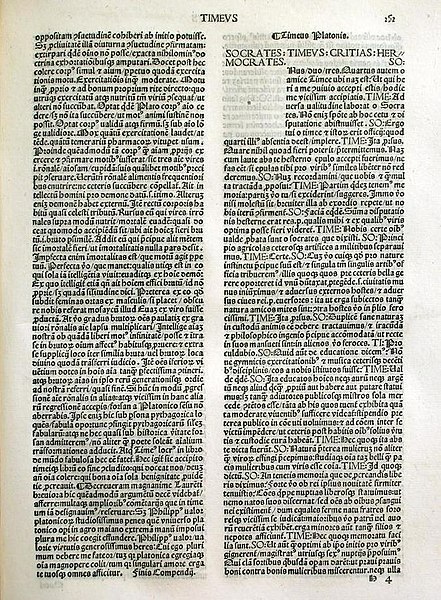Atlantis is a fictional island mentioned in Plato's works Timaeus and Critias as part of an allegory on the hubris of nations. In the story, Atlantis is described as a naval empire that ruled all Western parts of the known world, making it the literary counter-image of the Achaemenid Empire. After an ill-fated attempt to conquer "Ancient Athens," Atlantis falls out of favor with the deities and submerges into the Atlantic Ocean. Since Plato describes Athens as resembling his ideal state in the Republic, the Atlantis story is meant to bear witness to the superiority of his concept of a state.
A fifteenth-century Latin translation of Plato's Timaeus
A Faroe Islands postage stamp honoring Janus Djurhuus's poem "Atlantis"
François de Nomé's The Fall of Atlantis
Nicholas Roerich's The Last of Atlantis
In Greek mythology, Atlas is a Titan condemned to hold up the heavens or sky for eternity after the Titanomachy. Atlas also plays a role in the myths of two of the greatest Greek heroes: Heracles and Perseus. According to the ancient Greek poet Hesiod, Atlas stood at the ends of the earth in the extreme west. Later, he became commonly identified with the Atlas Mountains in northwest Africa and was said to be the first King of Mauretania. Atlas was said to have been skilled in philosophy, mathematics, and astronomy. In antiquity, he was credited with inventing the first celestial sphere. In some texts, he is even credited with the invention of astronomy itself.
The Farnese Atlas, the oldest surviving depiction of the celestial spheres.
Atlas and the Hesperides by John Singer Sargent (1925)
Herkules und Atlas by Lucas Cranach the Elder
Atlas and Heracles, metope from the temple of Zeus at Olympia.








